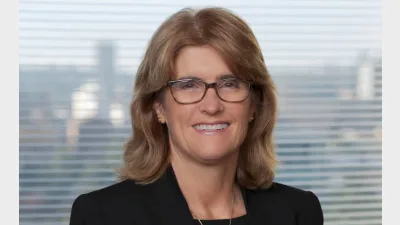Super CEOs align on climate risk disclosure, push for global reporting consistency



Australia’s super executives are increasingly aligned in their focus on consistent climate risk disclosure and reporting.
Climate risk has been highlighted as a key priority for superannuation CEOs and key industry executives, as they work to address its implications on funds’ financial stability and sustainability.
This was the theme of the Australian Prudential Regulation Authority (APRA) and the Australian Securities and Investments Commission (ASIC) superannuation CEO roundtables jointly hosted in November and December, which examined key issues related to climate and nature risk.
These were attended by 14 superannuation CEOs – including that of AustralianSuper, ART, HESTA, and Insignia – and other executives representing a cross-section of the industry.
“The CEOs collectively emphasised the importance of consistent climate risk disclosure and reporting, highlighting the need for standardised metrics, methods and scenarios to ensure comparability across the industry,” APRA revealed on Monday.
This comes as the recent legislation of Australia’s first climate-related financial disclosure regime, coupled with the introduction of the Australian Sustainability Reporting Standards (ASRS), reaffirms the importance of transparent and consistent reporting.
However, this also presents a new set of challenges. APRA said that the CEOs expressed concerns about the complexity and cost of mandatory reporting, though they recognised the advantages of voluntary disclosures.
At the roundtable, participants underscored the importance of clear and practical guidance from regulators and the role of industry bodies in supporting trustees.
“They also discussed the challenges of integrating nature risk with climate risk and the need for reliable data and consistent metrics, and the impact of climate risk on their investment strategies and the selection of investment managers and custodians,” APRA said.
Moreover, the prudential regulator said that there was cross-industry support for aligning with global standards in climate risk reporting, coupled with the need for international co-ordination. However, the challenges posed by different reporting standards across jurisdictions were also highlighted, reinforcing the value of a consistent, unified approach.
“APRA and ASIC acknowledged these challenges and agreed on the importance of seeking opportunities for alignment with global standards and where appropriate, across industries,” it said.
“[The CEOs] flagged the need for a coordinated approach to avoid duplication of efforts and ensure that Australian superannuation funds are aligned with global best practices.”
Turning to how super funds can maintain clear communication with members regarding climate and nature risks, the CEOs pointed out the challenges that remain in making technical information accessible to members.
As such, they emphasised the need for user-friendly guidance, standardised metrics, and concise communication across different member publications.
“The CEOs also acknowledged their reliance on third‑party providers of climate data, noting that without consistency in reporting standards and data, providing reliable information for effective member communication is challenging,” APRA said.
And while the executives believe that nature risk is becoming of growing importance, they conceded it is “not yet a primary focus”.
“They noted that nature risk is intertwined with climate risk, and presents both financial risks and opportunities,” it said.
“The CEOs noted that industry bodies have a role to play in providing clear guidance and standardised metrics to help trustees navigate the complexities of the data.”
Echoing this sentiment, APRA suggested that industry bodies could develop a code to facilitate collaboration.
“Similarly, ASIC underscored the importance of industry bodies in aiding compliance and providing practical, user-friendly guidance to ensure reporting is useful for decision making,” the prudential regulator said.
“APRA, ASIC, and the CEOs in attendance all agreed on the crucial role that industry bodies play in supporting trustees and ensuring consistent and effective climate risk disclosure and reporting.”
Recommended for you
Advice licensee Centrepoint Alliance has entered an agreement to acquire the comprehensive financial advice book of the super fund’s subsidiary firm.
A coalition of industry groups including the SMSF Association is demanding the government and the opposition “immediately and unequivocally rule out any move to tax unrealised investment gains in any part of the tax system”.
AMP’s new chair has used his inaugural AGM address to call for policy reform on the “decumulation” phase of superannuation and position AMP as a key player in addressing the challenge.
Reserve Bank governor Michele Bullock has quashed hopes of an out-of-schedule rate cut, telling an event in Sydney that it remains too early to determine the trajectory of interest rates as the RBA grapples with growing global economic volatility.












